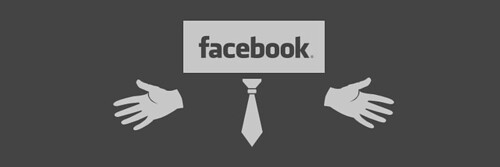Do students use Facebook for social learning? YES!
Yesterday was interesting. I listened to an interview with Jon Scott, a researcher/educator in Cardiff University about the need for social academic platforms- that would support collaborative learning, for example students working on group projects together, annotating documents, question and answer forums. Theoretically VLEs like Blackboard can support this. But either they aren't used this way or attempts to use them this way fail. The discussion that followed on Twitter considered that whatever platform was developed should be like Facebook. It should seem as easy to use. It should be somewhere that students wants to be and were anyway. Afterall as a student your social and academic life do often collide in any case. But then it was suggested that Facebook wasn't that easy to use. Most people didn't understand the privacy settings. They probably were not using it for academic work.So I wrote a blog post asking students if they 'used' Facebook for learning and lo and behold they do!
The uses cover:
1. Private messages (as an email replacement?)- to ask close friends questions and to work on projects in a groups as documents can be attached.
2. The use of peer-led academic content groups where students can ask each other questions particularly in the run-up to exams.
3. Following pages from BMJ learning, eMedicine, medrevise to help with revision
4.The use of private (even secret) groups to work on group collaborative tasks by sharing documents. The notifications side-bar is particularly useful for letting students know when something new has happened.
5. For sharing information from face-to-face small group activities. There is no additional task to be shared but the content is useful to others.
6. Instant messaging! If VLEs were set up with instant messaging this would be a big win. It is one of the features that students like most about Facebook.
And why are people using Facebook?
-Privacy - this is a space that does not belong to the university so the chances that what is being said will be seen by a member of staff are reduced
-Accessibility- there is a lot less clicking on Facebook than in the VLE and it is faster than the VLE
-People are there- most people go in to Facebook every day. There is every likelihood that you will get a fast response to a query. This is in contrast to asking a question in a discussion forum to support learning on the VLE. As one student said; " if I asked a question on there, it would be as useful as talking to a brick wall as there's no one else on there!"
I also asked students if they felt pressure to be on Facebook in order to be able to keep up with peers. Would students miss out if they didn't have a Facebook account?
One student described how a colleague stopped using Facebook whilst they were in the middle of working on a project. That meant a lot more to-ing and fro-ing for the others in the group. Another student said that they weren't aware of anyone objecting to Facebook but if they did then they could manage as long as someone else kept them in the loop by sharing what was on Facebook.
There was also an interesting point made that some students thought that there university might not approve of the sharing of notes within these communities. The same might go for the sharing of exam questions. This reminded me of a post by Dave White on the Learning Black Market.
Did students worry about their privacy using Facebook? Some did mention disliking the fact that they had to use Facebook but it worked. It was a trade-off they were prepared to make.
If students use Facebook for social learning then should educators be there too?
Remember yesterday's blog post had emerged out of a discussion about whether an additional social academic platform was necessary and whether Facebook was already acting as that platform. It appeared that to a certain extent it is. The next question is should educators be there too in order to support the social learning that is taking place?
That conversation had been progressing rapidly in tandem! Alan Cann had started a discussion on google + about my post. His opinion " Allow Facebook to be a student owned space. if you want to set up groups to support learning, do it elsewhere". Now in ways this is a little surprising from Alan. His general mantra is "Build networks, not destinations." In Facebook the network is there! The students are there! Trying to take them to another destination that isn't about their network seems slightly doomed.
I'd come across a post by Cristina Costa titled "Why Facebook and teaching don't go together". She makes a few points here. Her strongest contention is that Facebook is not a pleasant organisation and that we don't know how or can not understand how they are using our data. If students wish to organise themselves there then that is up to them, but if educators have a presence on Facebook then they could be seen as giving tacit approval to Facebook. They might also be seen as encouraging students to set up a Facebook account.
On the other hand, Natalie Lafferty shared a post that Donald Clark had written earlier this year giving 7 reasons why Facebook was posed to become THE social learning platform. But as Natalie pointed out, in a survey in Dundee University, there was a 50:50 split when students were asked if they wanted an institutional presence on Facebook. So the university held back.
At this stage I'd like to state that my attitude to Facebook is pragmatic. I have an account. It is personal. Nearly everyone that I am friends with are people who I have went to school with, worked with, met on holiday, met at university. Oh and family! We have a secret group where we can share pictures and videos and updates that we don't wan't to share with others.
But I have also used Facebook as an academic. I have been involved in using a Facebook group to help recruitment to a student research project. I've set up a Facebook page in the past to share content that I was already posting to Blackboard. A few hundred students liked the page. No one asked to become by Facebook friend and I didn't ask them to become mine. These uses of Facebook did not seem to present any kind of boundary confusion. It didn't stop students using Facebook to support their learning in the ways that they had already been doing.
"There be dragons!"
My fear is that as educators we have ended up demonising Facebook. And we've done this in a few different ways.
Particularly in medicine, Facebook has been presented as a place where bad things happen and a challenge to professionalism. Have a look at the references on Pubmed. In the piece I wrote for the GMC in advance of the publication of their social media guidance I made the point that the reactions to Facebook seem to approach moral panic, when in fact most people are using it in very civilised ways.
All of this has meant that some, maybe many, students do not trust us to be anywhere near them on Facebook. Jon Hilton has left a great comment which illustrates that the very accessibility that makes Facebook great (2 clicks and you're there!) is also what makes it feel risky. What if a student posts a drunken photo to the wrong group? What if they say something about a lecturer that they wouldn't have said otherwise? Can educators be trusted to respond responsibly to those events? Can we? I would hope that we could. Mistakes are made. People learn. Students and educators both need to learn about digital literacy and digital professionalism, and I think it would be great if we started as we meant to go on and learnt together.
But what about the accusations that it is irresponsible to lead students to Facebook, or to give tacit approval to the organisation. This is a decision that educators need to make themselves. My instinct is that students have decided that they know they are the product. This is a free service and they are paying for it by handing over their information. But it is a trade-off that has value for them. They are prepared to put up with ads for topics they mention in passing. Being off the grid isn't really an option for them. Yes, we don't know how all this information will be tied together and made sense of in the future.
I also sense that there is a fear amongst educators that their presence on Facebook will be desperately uncool. Private groups that an educator might set up in Facebook might be seen as 'creepy treehouses'. The concept of the creepy treehouse emerged in 2008 just as people were starting to explore the possibilities of social media for learning. But 4 years later how has our understanding shifted? Is it time to explore the opportunities of Facebook in a mature and confident way? Actually, Melanie McBride was arguing that we should do this back then:
"If we do not all venture into these spaces together – as a guided and pedagogically relevant tour – we will become even further disconnected from a student population who are being corporatized at every turn."
"If we do not all venture into these spaces together – as a guided and pedagogically relevant tour – we will become even further disconnected from a student population who are being corporatized at every turn."
We have to be clear to not ask too much of any platform. Can Facebook work with the VLE? Could it be used to support specific pieces of work or just for a big private year group to answer student queries in the way that students are already using it? Any new uses of Facebook by educators shouldn't step on the toes of students who are already doing a great job.
And because I like to put my money where my mouth is, I decided last night to start a Facebook group to try and learn together with Cardiff University students how we could use technology/elearning better in the course. This could have been done through the VLE. I could have set up different forums for each year group. The students would have been less certain about who was reading their posts. The first thing I posted was the YouTube above which gives quite a very negative view of Facebook. The next item I posted was this screencast about how to check how your timeline looks to members of the public.
Is it time that educators started making timid expeditions into the scary land that is Facebook? What do you think?


